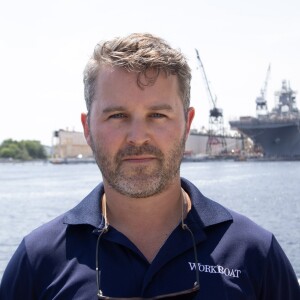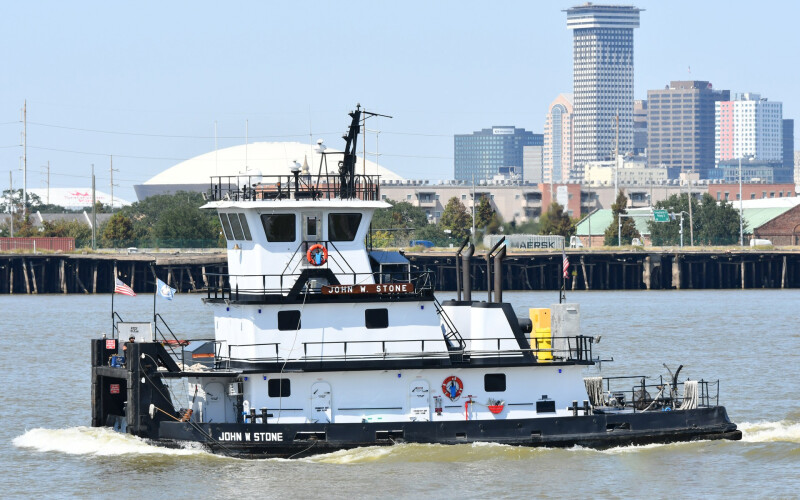John W. Stone Oil Distributors LLC, Gretna, La., has recently secured a ratable supply of renewable diesel (RD99) to help jumpstart the process of converting its
With commitments to storage and distribution, the company aims to play a pivotal role in promoting lower-carbon fuels and assisting vessels in meeting regulatory emission targets on the Gulf Coast.
Chief Operating Officer Tony Odak told WorkBoat that as of July 11, the company had started the process of converting its marine fleet made up of 11 inland tug/towboats, 47 inland barges, and three offshore tanker units to RD99. The company said it expected to have approximately 50% of its fleet converted by the end of July.
“Covering the Lower Mississippi, intercoastal waterways, and the Gulf of Mexico, and with a robust distribution network in place, we expect to have the remainder of our vessels on RD99 by the end of August,” Odak said.
Renewable diesel is made from fats and oils, such as soybean oil or canola oil, which undergo processing to become chemically identical to petroleum diesel. RD99 meets stringent ASTM D975 specifications for petroleum in the U.S. and EN 590 in Europe. Thus, renewable diesel can be used as a direct replacement for petroleum diesel or blended with any amount of petroleum diesel, offering flexibility and compatibility for various applications.
Back in 2014, the company began repowering much of its fleet as part of its environmental, social, and corporate governance plan (ESG). By transitioning its marine fleet to renewable diesel, the company said it proactively aligned its operations with sustainable practices and emission reduction goals. Renewable diesel, with its chemical similarity to petroleum diesel, exhibits a potential for greenhouse gas (GHG) emission reductions of up to 75% on a life-cycle basis compared to conventional fuels, the company said.
Stone has committed to two substantial storage tanks in the region. The company has secured a 100,000-bbl. tank in Port Fourchon, La., and an 85,000-bbl. tank in New Orleans, enabling efficient storage and distribution of renewable bunker fuel. The strategic locations are designed to enhance accessibility and facilitate the expansion of renewable fuel usage in the region. The alternative fuel subsidies and regulations that are prevalent on the West Coast don’t exist yet in the Gulf region, and the local demands for RD99 are driven by decarbonization efforts.
Acknowledging the need for a diversified renewable diesel supply chain, Stone is actively developing agreements with other oil refineries. These agreements aim to secure additional sources of renewable diesel, and by forging partnerships with refineries, the company is demonstrating its commitment to expanding the availability of sustainable energy solutions within the industry.
Odak added that it’s not only domestic vessels but visiting trade and foreign shipping that are seeking RD99 to help meet lower emission targets. The adoption of renewable diesel represents a major stepping-stone for the maritime industry to reach net zero emissions, the company said. Stone recognizes this need and wants to assist vessels in adhering to regulatory emission standards, Odak said.
“We have found that meeting these goals and being fiscally responsible are not mutually exclusive,” Odak said. “Rather, the pursuit of these ESG initiatives has positively impacted our top and bottom lines.”





